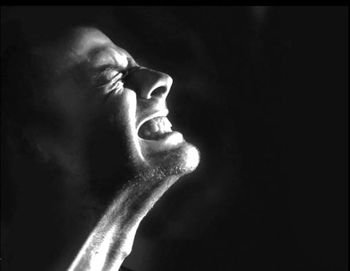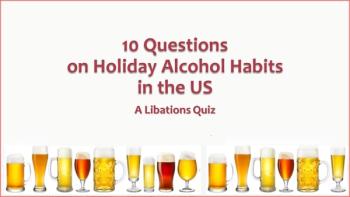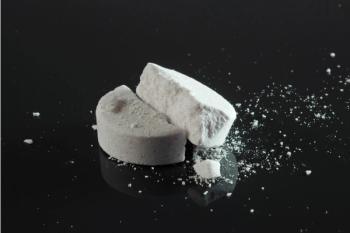
Drinking Early in Life a Recipe for Future Alcohol Woes
BOSTON - The path to alcoholism starts with a drink at a remarkably young age, according to a study here.
BOSTON, July 6 - The path to alcoholism starts with a drink at a remarkably young age, according to a study here.
Forty-seven percent of those who began drinking before age 14 became dependent on alcohol at some point later in life, compared with 9% of those who started drinking at age 21 or older, said Ralph W. Hingson, Sc.D., M.P.H., and colleagues at the Boston University School of Public Health here.
For each year earlier than age 21 individuals started drinking, the greater the risk that they would eventually become alcoholics, the Boston researchers reported in the July issue of Archives of Pediatric & Adolescent Medicine.
The study analyzed data obtained from face-to-face interviews with 43,000 U.S. adults ages 18 or older conducted by the National Epidemiologic Survey on Alcohol and Related Conditions during 2001 and 2002. The project is sponsored by the National Institute on Alcohol Abuse and Alcoholism (NIAAA).
Nearly 4% of study participants were dependent on alcohol during the year they were surveyed. More than 12% of the study participants had been dependent at some time during the lives, the investigators found.
Compared with those who first imbibed at age 21 or older, those starting before age 14 were 78% more likely to become alcohol dependent (hazard ratio=1.78; 95% confidence interval=1.5 to 2.1; P<.001), the researchers found.
Those who started drinking before 14 were also more likely to experience episodes of dependence lasting a year or more (HR=2.62; 95% CI=1.79 to 3.84) and to experience six or seven dependence symptoms versus only three to five (HR=2.89; 95% CI=1.97 to 4.23), the study found.
They were also more likely to become hooked within 10 years of starting to drink (HR=1.69; 95% CI=1.38 to 2.07), according to the results.
These associations held true after adjusting for factors such as age, sex, race, ethnicity, educational attainment, marital status, smoking, drug use, and history of antisocial behavior, the researchers said.
A chief drawback of the study was its reliance on participants to recall the age at which they first started drinking, the researchers added.
In addition, they pointed out that "potential confounding variables not considered may have been responsible for the observed relations. Genetic factors, disinhibitory behavior patterns, and other psychiatric disorders may relate to early drinking onset and the development of alcohol dependence. Also, children who experienced overt physical, sexual, or psychological abuse or whose parents exhibited psychiatric symptoms may start to drink at an earlier age and may drink larger amounts to cope with posttraumatic stress disorders."
Nevertheless, they said, "this study reinforces important concerns about youth starting to drink at early ages."
Longitudinal studies that begin following participants before they start drinking will be necessary both to confirm these results and to explore whether interventions to delay the age of drinking onset can reduce alcohol dependence during adulthood, the scientists said.
"Although the results of this study suggest such an impact is plausible, confirmatory longitudinal research is needed," they concluded.
Newsletter
Enhance your clinical practice with the Patient Care newsletter, offering the latest evidence-based guidelines, diagnostic insights, and treatment strategies for primary care physicians.

































































































































